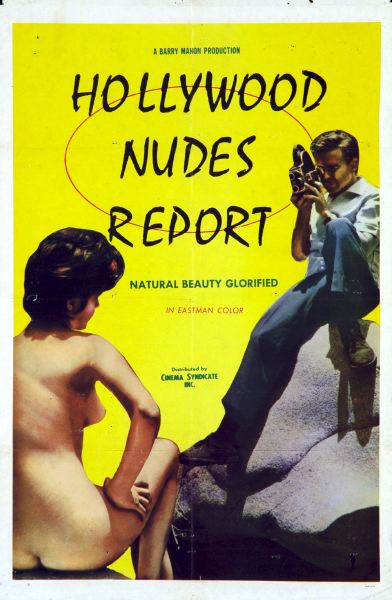
A report recently issued by the Institute for Policy Innovation (IPI) concluded this week that movie pirates cost the American economy over $20 billion in lost taxes, jobs, and revenues. It should be noted that the IPI limited its research to data supplied by the Motion Picture Association of America (MPAA). With this one gesture, the highly contentious issues of intellectual property copyright and consumer protections were thoroughly ignored. Instead, the public has been handed yet another industry manifesto in the guise of legitimate and productive discourse.
As a side-note, to take get a decent view of the biased nature of the IPI, here's a great video feed of a Capitol Hill briefing from September 19 concerning health care.
Watch the archived video of IPI's Sept. 19 Capitol Hill Briefing The Dangers of Undermining Patient Choice: Lessons from Europe and Canada. (depending on your system, in order to see the video you might need to copy the URL from the website that opens into Windows Media Player, Winamp, etc)
The issue of media piracy can be viewed as one of the defining examples of the problematic transition from a culture of physical media (books, records, film stock, etc) to one of digital ephemerality. No longer do I need the information contained in a film to be delivered to me using film stock, magnetic tape, or metal sandwiched between plastic. Instead, films can be delivered in a less tangible way. Many people already experience digital delivery of films and television through their cable boxes, which is a service that the MPAA and similar organizations endorse. Others happily avoid both pay-per-view and the movie theatre by downloading movie files from the internet. This last fact is where the discussion over fair use of intellectual property is most required. For the moment, I will ignore the tragicomedy surrounding the MPAA’s numerous legal suits pending against consumers who wanted to see MPAA films. Instead I want to focus more on the media distribution system itself.
Currently, there is no technological limitation to the immediate digital delivery of films, television, and music. Those among us who know where to locate such things on the net can tell you that downloaded films are often of comparable quality to a DVD. In some cases, downloads are of superior technical quality than the official release – think of high definition, which was not available until a few months ago.In the case of a few select films, marketing decisions might render a particular DVD issue less-than-optimal. North American issues are frequently censored or otherwise altered in order not to offend the more “puritanical” mores believed to exist in this continent.

Stanley Kubrick’s unfinished 1999 film Eyes Wide Shut, for example, has a highly problematic North American release. The film was digitally altered so that it would receive an R rating, and as such the narrative continuity between audience and protagonist is demolished (ie: the film’s meaning changes). Now I myself am an adult with the emotional maturity to handle looking at an erect penis or a simulated act of fellatio. Apparently, so are Europeans, who were treated to a non-altered DVD issue. Thanks to the brilliant marketing decision to incorporate region-coded limitations into the DVD format, I cannot even play a legitimately purchased European DVD on my North American player. I have to point out that it is highly likely that Stanley Kubrick wanted me to see the version of the film that he actually made, and not one that is region-specific. In this spirit I feel fully confident in my rights as a consumer to download a European DVD-rip, burn it to a disc, and then show this version to students or friends. Since I feel that I am more enlightened about this issue than the marketing department at Warner Brothers, I will supercede their authority over which version I am allowed to watch. When contacted, the MPAA mentioned that each region gets the “optimal” version of the film, and that region coding is intended to curb piracy. It seems that China is at the heart of the issue, and here we come back to the IPI report.
For a film to be considered “legitimate”, it has to go through regular distribution channels, involving lawyers, middlemen, retail expenses, and mark-ups galore. Since so many people get a slice of the revenue, that pie needs to be big enough that everyone is satisfied. The IPI (by extension the MPAA) argued that piracy has cost all of these people their livelihoods (more specifically: $5.5 billion in “lost” earnings; 141,000 new jobs not(!) created; film studios losing 10% of their potential revenue). At this stage it should be noted that all these “loses” remain in the jurisdiction of potentiality. To be fair, there is a case for the loss of potential revenue, however misguidedly optimistic such a concept might initially seem. At the same time however, we cannot let considerations of possibilities consume the argument, which should be focussed on both consumer rights and intellectual property rights. I have a right as a consumer of a cultural product to a direct relation with the art involved; I will not have that right taken away from me by non-artists who believe that marketing concerns trump aesthetic or philosophical ones. Out of this comes a dictum of sorts: it is more important to experience art than to pay for that experience. In this guise, call me a communist if you must.

In China, the consumers are winning. The reason for this is simple: the Chinese market has rejected the idea that films should cost as much as they do in the rest of the world. When the cost of producing a DVD is around 50 cents (not a burn, which can be significantly cheaper than 50 cents, but an officially-printed disc), it should not be sold at retail for more than ten times that price. Consequently, when Hollywood attempted its North American standard pricing of $24.99 - $34.99 it was almost laughed out of the country. No thanks, the Chinese consumer seemed to say, we’ll just make our own copies and sell them at more reasonable prices. Hollywood responded by trying to strongarm Chinese consumers into paying the “regular” price, but after almost ten years the fight has concluded. Warner Brothers recently announced that it would release the Chinese version of Superman Returns on DVD for around $2, thus pricing an official release competitively with its bootleg counterpart. Similarly, when I was in Korea I purchased an official 6-DVD boxset of Kieslowski’s Decalogue for $30, while the cheapest North American release I found was a 3-disc set for $95. I ripped the Korean DVDs to my computer thus bypassing the regional coding, then burned them to DVDs that my player would read. MPAA, please send your lawsuit to: my ass, c/o bite it.
This issue is about balancing consumer rights with those of the producers of intellectual property. I thoroughly believe that the arts deserve financial support, which can involve a significant investment on the part of the consumer. With Hollywood however, we are for the most part not really talking about art but rather product, and consumers will respond in rather mechanical ways to its consumption. Personally, I think that for North America, $5 is a good digital download price, while $10 would be a great retail price (barring limited/special issues). More DVDs would be sold, and while initially the studios would not see higher profits due to the lowered price, any dime-store business student can describe volume as more important than margins in the long-term health of a company.
Groups like the MPAA whine that the high cost of films reflects ever-increasing production costs. No offense MPAA, but that’s your fucking problem (YFP). Not too many industries complain about production expenses while continually raising them. Furthermore, in and of itself production costs do not explain the public’s dwindling interest in Hollywood properties. To paraphrase a conversation that I had with a local video rental retailer, the 2005 Pink Panther remake tanked at retail, rental, and the box-office not because of piracy or lack of marketing initiatives. That movie and many like it lost money because they fucking sucked donkeys. At the end of the day, it boils down to a simple query: why has the cost of making Hollywood films escalated to two or three hundred million dollars? Coupled with the aesthetic and narrative bankruptcy of most Hollywood releases, this trend signals to me that the writing is on the wall for this little self-important group who consider themselves to be at the forefront of world culture. I can just picture the cynics lined up on Hollywood Boulevard: there’s rampant poverty in this country, real wages are declining rapidly, jobs are being outsourced, only half the country has medical care, Asian and Indian cinema are progressing exponentially, an energy crisis is looming, etc, etc, and you are spending how much money to make a Superman movie???
1 comment:
Thanks for thiis
Post a Comment